This article is crafted specifically for you, the founder of a Seed Round FinTech Startup. In the dynamic and ever-evolving financial technology sector, finding and securing lucrative deals is the linchpin of success. You're not just looking for any deal; you're in search of the right partnerships and investments that can propel your startup to the next level. Deal sourcing, therefore, becomes a critical component of your growth strategy. It's a challenging landscape, but this article provides professional, supportive, and insightful strategies to enhance your deal sourcing efforts effectively.
Understanding the Venture Capital Landscape
To navigate the waters of venture capital, it's essential to grasp the underlying principles that govern it. One such principle is the Pareto principle, which states that approximately 20% of companies return 80% of the value in the venture capital space. This means that for investors, and for startups like yours looking for investment, focus and precision in targeting the right opportunities are paramount. It's not just about finding any deal; it's about finding the deals that have the potential to be within that impactful 20%.
This insight into the venture capital world's dynamics is crucial as you embark on your deal sourcing journey. Recognizing that only a fraction of investments yield the majority of returns can guide you in crafting pitches and business strategies that appeal to the discerning eye of potential investors who are aware of this distribution (Affinity Blog).
Building a Strong Network
In the realm of venture capital, your network is your net worth. Building a strong network is indispensable, and the statistics back this up—venture capitalists themselves dedicate an average of 22 hours a week to networking and sourcing deals (HBR). As a startup founder, you should mirror this commitment. Networking provides you with access to industry insights, potential partners, and, most importantly, investors.
Here are some bullet points on networking strategies that you can incorporate into your routine:
- Attend Industry Events and Conferences: These are hotspots for meeting investors and fellow entrepreneurs. Make sure to engage in conversations, exchange business cards, and follow up promptly.
- Engage in Online Communities and Forums: These platforms can be goldmines for advice, recommendations, and introductions.
- Utilize Professional Social Networks like LinkedIn: Actively connect with and reach out to potential investors and industry experts. Share updates about your startup to keep your network informed and engaged.
Building a vast and robust network can be time-consuming, but it's an investment worth making. Start by setting weekly networking goals and gradually expand your circle. Remember, the relationships you cultivate today could lead to the deal that makes all the difference tomorrow.
Cultivating an Attractive Startup Profile
The attractiveness of your startup to potential investors is not solely based on your financials or technology—it's also about the relationship you build with them. Chris Dixon, Partner at A16Z, famously said that 'Success in VC is probably 10% about picking, and 90% about sourcing the right deals and having entrepreneurs choose you'. This statement underscores the importance of not just finding investors, but also being the type of startup that investors are eager to work with (Affinity Blog).
To make your startup appealing, you need to showcase a clear and scalable business model, a strong and diverse team, and demonstrable traction in your market. Present your startup as a thought leader in the FinTech space, and articulate your vision compellingly. This will not only help you stand out from the crowd but also increase the likelihood of investors choosing you over competitors.
Utilizing Technology and Platforms
In today’s digital age, technology plays a crucial role in deal sourcing. There are numerous platforms designed to streamline the process of finding potential investors. These platforms can help automate the search and provide you with a more efficient way to identify and reach out to investors who are a good fit for your startup.
It's also beneficial to use Customer Relationship Management (CRM) tools to manage interactions with current and potential investors. These tools can help you keep track of communications, meetings, and follow-ups, ensuring that no potential deal slips through the cracks due to oversight or mismanagement. Creating Value through Thought Leadership
In a crowded market, establishing your startup as a thought leader can be a game-changer in deal sourcing. By offering valuable insights and content, you can attract attention from the right investors and partners. Thought leadership can help you build credibility and demonstrate deep understanding of the FinTech industry.
Here are some strategies to establish thought leadership:
- Publish White Papers: Share in-depth knowledge on specific FinTech challenges and solutions.
- Blog: Regularly update your company blog with industry analyses, trend reports, and vision pieces.
- Speak at Events: Offer to speak at industry conferences or webinars to showcase your expertise.
Engaging with Potential Investors
Investor engagement is an art form. It requires a tailored approach for different types of investors. When you’re pitching, it’s crucial to align your startup’s objectives with the investor’s interests. Understand their portfolio, their investment thesis, and their previous engagements to present your startup as an opportunity they cannot miss.
Nurturing relationships with potential investors is also vital. Start engaging with investors before you need to raise funds. Share updates about your company’s progress and industry insights to keep them in the loop. When the time comes for your Seed Round, these investors will already be familiar with your startup and more likely to consider investing.
Conclusion
Effective deal sourcing is a multifaceted endeavor that requires diligence, networking, and a compelling startup profile. By understanding the venture capital landscape, building a strong network, and engaging with potential investors, you can increase your chances of securing lucrative deals. Thought leadership and the use of technology can further enhance your deal sourcing strategies.
Call to Action
We hope this guide has provided you with actionable insights to improve your deal sourcing strategies. If you have any questions or want to share your experiences, please feel free to contact us or leave a comment below.
Table: Investor Engagement Strategies
| Investor Type | Engagement Strategy |
|---|---|
| Angel Investors | Personalized pitches, highlighting the impact and vision of your startup |
| Venture Capitalists | Data-driven presentations, showcasing market potential and scalability |
| Strategic Investors | Demonstrating alignment with their long-term strategic goals |
Remember, deal sourcing is an ongoing process that benefits from a proactive and systematic approach. With the right strategies in place, you can navigate the complexities of securing investments and ensure the growth and success of your FinTech startup.

